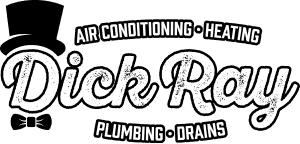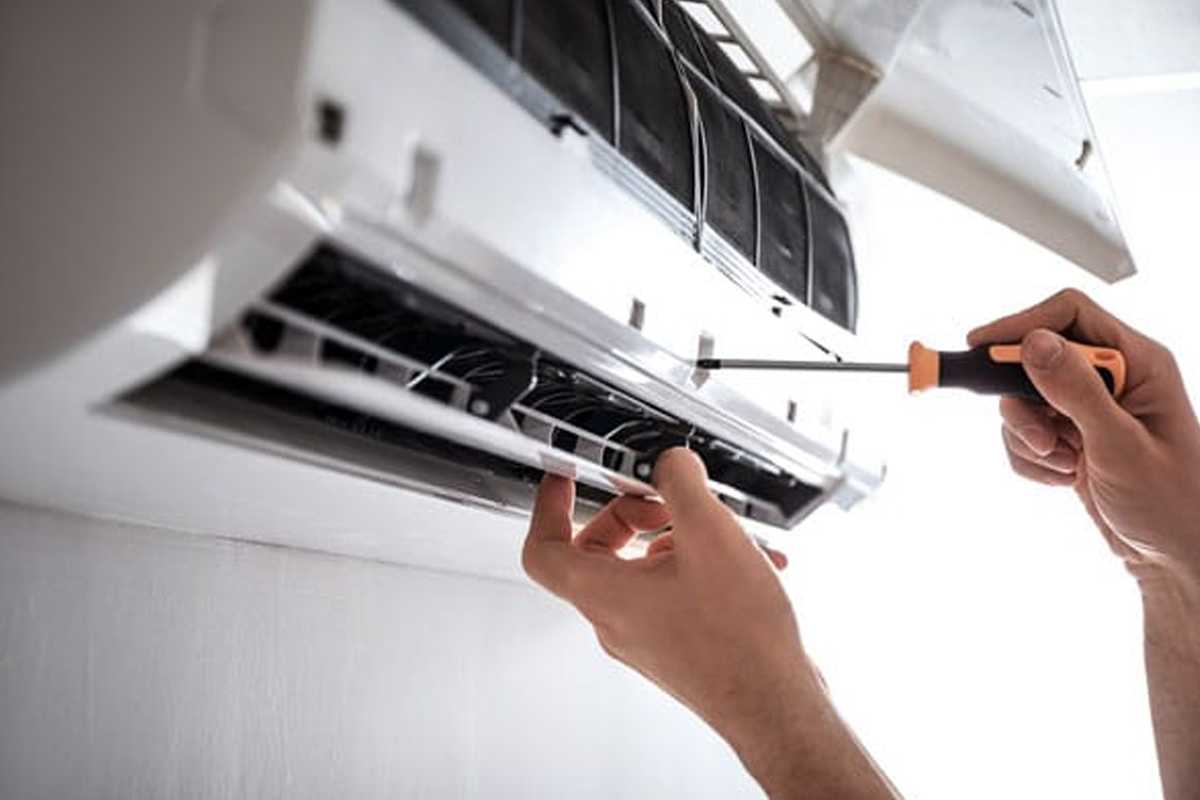HVAC units provide the optimal temperature and airflow for your home. As a complex unit, an HVAC system involves several parts that each affect its overall performance. While you may want to save money with a DIY HVAC repair, you can have confidence in your local HVAC technician to inspect your unit and replace any faulty parts.
What is an HVAC technician? Your local HVAC technician has the expertise and tools needed to inspect and repair your HVAC unit. If your HVAC system is showing symptoms of decline, an HVAC technician can assess your unit and see what you need to replace.
6 Reasons Why You Shouldn’t Do a DIY HVAC Repair
You should leave the repairs for your HVAC unit to the professionals. While you might want to save money or take ownership of your property, you could be endangering your family and wasting precious resources by doing the project on your own.
1. You’ll Be Prone to HVAC Safety Hazards
An HVAC certification shows a specialist’s qualifications to handle your HVAC unit. Trust a professional who can expect the unexpected while repairing your furnace. An HVAC specialist knows how to deal with these common HVAC safety hazards:
- High voltage: HVAC systems use 50% of your home’s monthly energy bill. Your unit is on a high voltage, which puts you more at risk of an electric shock if you do the repair yourself. HVAC technicians know how to fix your unit without subjecting themselves to electrocution.
- Flammable natural gas: Improper handling of an HVAC system could result in a natural gas fire. An HVAC specialist has the tools needed to deal with natural gas, so you and your family can be safe.
- Carbon monoxide poisoning: Gas-powered furnaces produce carbon monoxide as a by-product of burning the gas to heat the air. A broken heat exchanger could leak carbon monoxide. An HVAC professional knows how to protect themselves against carbon monoxide poisoning.
Protecting you and your family against these harmful elements is worth more than the money you may save by doing the project yourself. Call a professional if you need to fix your HVAC system.
2. You Could Waste Time on Your DIY HVAC Repair
A professional HVAC appointment only takes a few hours. During the appointment, the technician will inspect the whole unit and repair any broken parts. You could work on a project or hobby you enjoy while an HVAC specialist conducts an inspection.
If you try to save money by doing an HVAC repair on your own, you’ll lose hours of precious time troubleshooting the various parts of your system. You’ll waste even more time if you need to call a professional after you find out the unit is beyond your expertise.
3. You Need Specialized Tools for HVAC Projects
HVAC technicians carry a special set of tools with them to be prepared for any HVAC project. To do the job yourself, you would need all of these tools on hand. Typically, HVAC technicians bring each of these tools to their job sites:
- Reciprocating saw blades: HVAC technicians need to have a reciprocating saw blade on hand for cutting through metal and pipes within the unit.
- 25-foot tape measure: HVAC technicians use tape measures to evaluate the length of ducts, furnaces, vents and AC units.
- Multimeter: Electrical testers can detect live wires, measure resistance and measure voltage. HVAC technicians need multimeters to protect against electric shock.
- Vacuum pump: A vacuum pump will help the technician remove the moisture in your refrigerant lines to find out if any lines are leaking.
- Safety goggles: HVAC technicians need to protect their eyes from dangerous chemicals and debris.
- Tin snips: These sharp scissors help HVAC specialists cut through ductwork.
- Mobile HVAC software: Professional HVAC companies provide mobile apps for their employees. From communicating with their supervisors to providing invoices for clients, HVAC technicians use mobile software to save time while on the job.
- Pipe wrench: HVAC professionals use pipe wrenches to manipulate the pipes inside of the furnace.
- Screwdrivers: An HVAC technician will have a variety of screwdrivers to fix loose screws within an HVAC system. The screwdriver should have an insulated handle to protect against electric shock.
- Cordless drill: A cordless drill can help the technician drill holes into closets or attics to install new wires.
- Flashlight: A flashlight can help an HVAC technician see in hard-to-reach places.
- Earplugs: An HVAC technician uses power tools all day. Earplugs protect their ears from damage due to excessive noise.
4. You Could Waste Money on Your DIY HVAC Repair
A faulty HVAC system will use more energy to regulate the temperature. You could waste money on your energy bill by leaving broken parts installed in your unit. Instead of risking the energy-efficiency of your HVAC unit by trying to repair it on your own, you can call an HVAC professional to provide the optimal energy-efficiency for your unit.
You also could break your HVAC unit even more if you try to fix it yourself. Since all the pieces of the HVAC unit work together, any malfunctioning part will affect the performance of the whole unit. You may have to pay more in repair costs if an HVAC technician has to fix any mistakes you made while trying to do it yourself.
5. You Need HVAC Expertise
Your HVAC system is complex, with unique, sensitive parts. Even if you watch videos online to get an idea of how to fix your HVAC system, you are not an expert. If you lack what is for an HVAC technician considered common knowledge, you could damage the unit while trying to repair it on your own.
HVAC specialists go through school, which can last anywhere from six months to two years. Then, they will complete an apprenticeship, which typically lasts between three and five years. In addition to these years of extensive training, HVAC specialists also need these skills to complete their daily tasks:
- Working in uncomfortable places: Most often, HVAC units are in small spaces like attics or closets. HVAC technicians have to work in extreme temperatures due to malfunctioning HVAC units.
- Awareness of local government regulations: HVAC technicians deal with natural gas, toxic chemicals and recyclable material. They need to be aware of government regulations on how to handle and dispose of faulty parts.
- Creative thinking: Since HVAC systems are complex machines, HVAC technicians need to know how each part affects the unit as a whole. HVAC technicians need to know how to brainstorm so they can troubleshoot the right parts of the unit.
You Will Void the Warranty
A warranty allows you to replace any part of your HVAC unit at no cost. Manufacturers provide a warranty to guarantee that your unit is going to last a certain amount of time. Your HVAC unit’s warranty is only valid if a certified professional has maintained the unit.
With a warranty, you can replace any part of your HVAC unit at no cost. Manufacturers need proof that a professional recently inspected your HVAC system for your warranty to be valid. If you cannot provide proof that you regularly schedule maintenance appointments for your HVAC system, the manufacturer may void your warranty.
Easy HVAC Maintenance Tips
If you want to save money, you should maintain your HVAC system to avoid emergency furnace or air conditioning repairs. You can take preventative measures on your own to prolong the life of your HVAC unit and require fewer repairs. Here are some ways you can take care of your HVAC unit to prevent common HVAC problems:
- Clean outside unit with a vacuum: Take the dirt and debris out of your outdoor unit that could be causing your machine to slow down. Use a garden hose to wash out the debris and cut any shrubs that are in the way of your outdoor unit.
- Clean or replace the air filter: Cleaning or replacing the air filter can decrease your AC unit’s energy consumption by 5 to 15%. Over the summer, when you use your AC unit the most, change out your filter once a month. During the rest of the year, change it out once every three months. You could also wipe the filter down with lukewarm water and soap if you don’t have the money to get a new one.
- Clean indoor vents: The ducts throughout your home could become dirty with debris and allergens. Take a vacuum and check out your indoor vents. You should also make sure no furniture or household objects are blocking the vents.
- Inspect wiring and other components: Before inspecting your unit, always turn off the power to avoid electric shock. To turn off the unit, you could flip the switch on the circuit breaker inside the home. You could also disconnect the service on your outdoor unit. Remove the access panel on your condenser unit and check for melted or broken wires.
- Check and adjust the thermostat: Your thermostat should be able to control the temperature of your home. If you have an outdated thermostat, consider replacing it with a programmable thermostat. Adjust your thermostat to provide a reasonable temperature for the season. For optimal cost savings, keep your thermostat at 78 degrees in the summer and 68 degrees in the winter.
- Inspect the fan in the condenser unit: Your AC unit’s fan is at the top of the condenser. You may have a problem with the fan if it doesn’t spin when you turn the AC unit on, or if you hear a rattling sound. Replace the fan blades if there are any visible chips or cracks.
- Check the furnace flame: The flame in your furnace should be light blue. If the flame is orange, you may need to replace the igniter. In that case, call a technician for a furnace repair.
- Schedule semi-annual HVAC maintenance appointments: You should schedule an appointment at least twice a year. An HVAC technician inspecting your HVAC unit could reduce the number of repairs you’ll need by 95%.
When to Call an HVAC Professional
An HVAC professional will help make sure that your HVAC unit is as energy-efficient as possible. You should call an HVAC professional:
To schedule a routine maintenance appointment: During a maintenance appointment, a specialist will clean and inspect your HVAC unit. You should schedule an appointment twice a year — once in the fall and once in the spring — to prepare your HVAC system to keep up with extreme temperatures.
- To replace a faulty part of the HVAC system: After you have inspected the unit yourself, you may notice a broken piece or a loose screw. Any broken part within the unit will affect the whole system’s energy-efficiency. An HVAC specialist can repair or replace any part of the HVAC system.
- To inspect an area making strange noises: Your HVAC system should make minimal noises while it’s running. If you hear a whining or grinding noise from the AC unit, you should call an HVAC professional to figure out if you need a central air repair.
- To lower your energy bill: If you notice a drastic change in your energy bill, your HVAC unit is losing its efficiency. Call an HVAC professional to test the efficiency of your unit and replace parts as needed.
- To address a thermostat alert: Newer thermostats can now send you an alert if your HVAC unit has a faulty part. Call an HVAC professional if your thermostat is alerting you of excess humidity or water.
- To fix a burning smell: When you first turn on your furnace in the winter, the dust settled on the furnace creates a burning smell. You could also smell something burning due to frayed wires within the unit. If your furnace is producing odd odors in the winter, call an HVAC specialist for a furnace repair.
Calling an HVAC professional will provide the following benefits for your home:
- Fewer repairs needed: If you schedule an appointment with an HVAC technician before your unit breaks, you will save money in repair costs. Routine maintenance of your unit can reduce your need for an air conditioner repair. Make an appointment with an HVAC specialist before your unit shuts down and needs to be replaced.
- Save money on energy and repairs: During a routine maintenance check, an HVAC technician will test the performance of each part of the unit. A functional HVAC unit has a higher energy-efficiency, saving you money on energy costs each month. A working system also needs fewer repairs, so you will save money on repair costs over time.
- Prolong the life of your HVAC unit: You should replace your HVAC unit after 10 or 15 years. Scheduling an HVAC maintenance appointment can help your HVAC unit last longer.
- Breathe in healthy air: As a ventilation system, HVAC units control airflow and provide healthy air for your home. Older HVAC systems that need repair tend to hold debris and allergens. A functioning HVAC unit will provide air that is safe for your family to breathe.
Call Dick Ray Master Plumber for All Your HVAC Needs
Instead of trying to fix your HVAC system in Kansas City on your own, call our professionals at Dick Ray Master Plumber. Your family’s safety is our highest priority. Through inspections and repairs, we will provide you with a healthy, energy-efficient HVAC unit.
At Dick Ray Master Plumber, we specialize in heating and cooling services for the Kansas City area, including air conditioning and furnace repairs. Call us at (913) 214-8770 to schedule a maintenance appointment with us today. You could also fill out a contact form online to find out more about the various services we offer.





